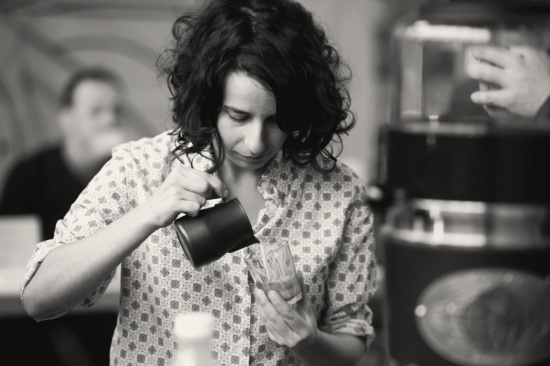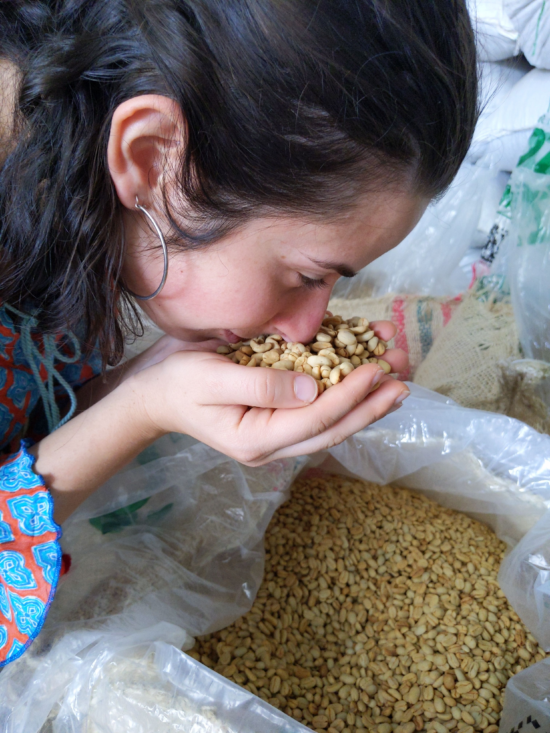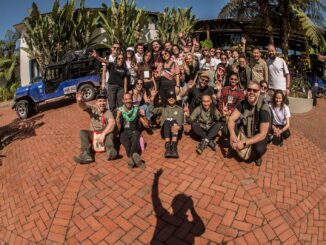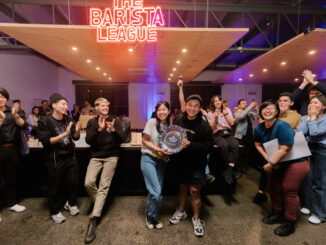
Today we continue our conversation with Helena Oliviero about her coffee career and life on a Colombian finca.
BY TANYA NANETTI
SENIOR ONLINE CORRESPONDENT
Photos courtesy of Helena Oliviero
Barista Magazine: Let’s talk about living on a Colombian coffee farm, Finca Palma Roja. How do you spend your days? What’s usually happening on a busy coffee farm?
Helena Oliviero: In a traditional Colombian finca, most of the coffee-related jobs—jobs that change throughout the year with the seasons—are still done by men. Fertilizing, planting, harvesting, cleaning with a machete, carrying heavy weights, processing, and drying coffee are just some of the hard manual jobs that must be carried out to make a finca productive.

Traditionally, however, the role of a woman on a farm is more related to the care of the farm itself and the children, cooking, and cleaning. Every day, all year-round, the woman is the first to wake up to make coffee and prepare the wooden cooker. At 8 a.m. it’s time for the cooked breakfast (in this region it’s meat broth with potatoes and/or eggs, and a plate of fried plantains, accompanied by rice mixed with a legume), followed by a short break with something to drink (usually hot chocolate or agua panela, water with cane sugar). At 12 it’s lunchtime with soup, meat or fish, rice, potatoes, yucca, and plantain. Then, after the afternoon snack, around 5 to 6 p.m., it’s dinner time, again with rice, legumes, eggs, or meat.
What is it like to be a young woman involved in coffee production? Do you find skepticism or mistrust? Do you find attitudes toward women changing?
I don’t see major changes internationally. There are countries where sexism is sneakier and others where it’s evident. I cannot say that I have found a better situation in Europe than in Latin America: Let’s not forget that I have been refused some jobs in Italy as a woman.

A big difference I can see is the approach to children and pregnancy. Besides the law implemented to improve maternity, I find Latin America less stressful to be a parent. In Colombia, it’s normal for a woman to have a child, and for this child to be integrated into daily life. People around you, including men, tend to be more careful around a child and take small precautions so as not to endanger the kid.
Besides this, I can tell what a coffee tastes like, and I can say how to change or improve a process. But as a woman, it’s very hard to tell a man what to do; they won’t pay me any attention.
What are your goals for the next few years, in regard to Finca Palma Roja and your coffee career?
Winning green coffee competitions such as Cup of Excellence or Tierra de Diversidad, and having our coffee positioned in competitions and among the best of Colombia. I also want to strengthen the import of regional coffees and special lots.
Have you always thought that one day you would leave Italy to move elsewhere? Have you always dreamed of it?
I grew up as a European. If people ask me I say I’m from Europe, so there are no boundaries in the community. When I was younger I was dreaming about Japan, then I got fascinated by the Latin culture that’s a mixture of reality and magic. I was sure I wouldn’t stay too long in my city because I’ve always been eager to discover more.

We’d love to know more about Helena when she’s not involved in the coffee world. What do you love to do? What are your hobbies?
I like hearing stories and learning from people. I like reading, walking, and watching the sea. I love traveling and discovering. And I like to take care of my daughter to make her grow up strong, independent, and empowered.
ABOUT THE AUTHOR
Tanya Nanetti (she/her) is a specialty-coffee barista, a traveler, and a dreamer. When she’s not behind the coffee machine (or visiting some hidden corner of the world), she’s busy writing for Coffee Insurrection, a website about specialty coffee that she’s creating along with her boyfriend.




